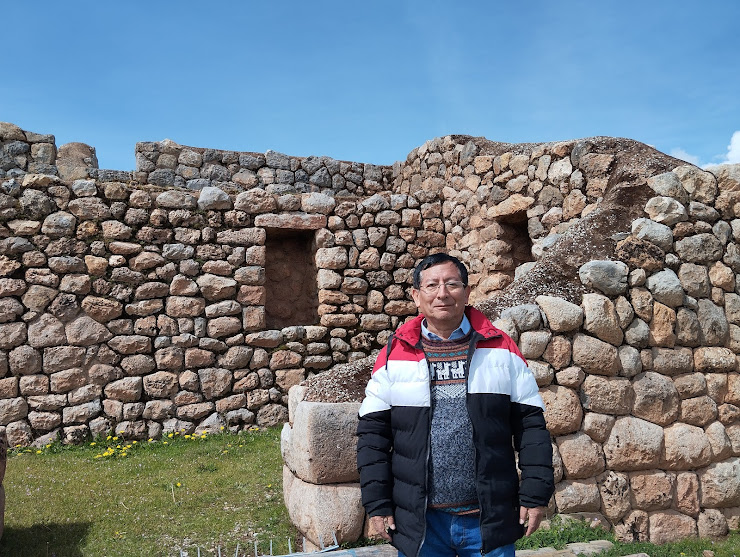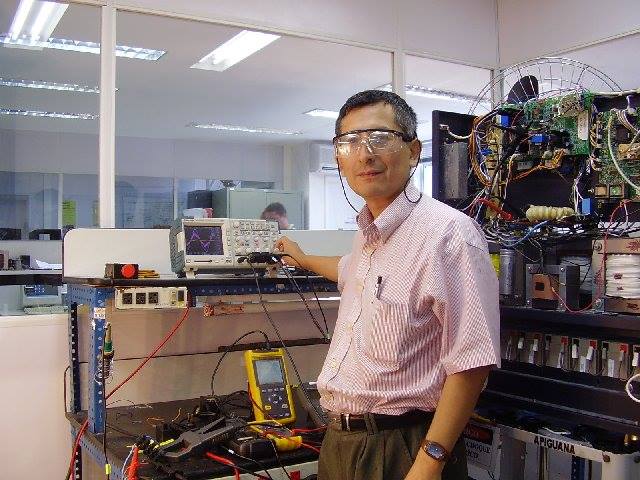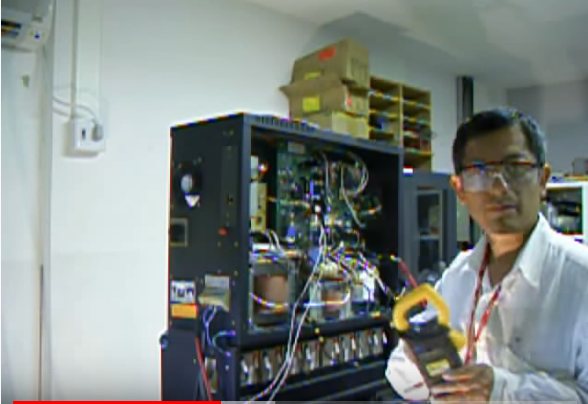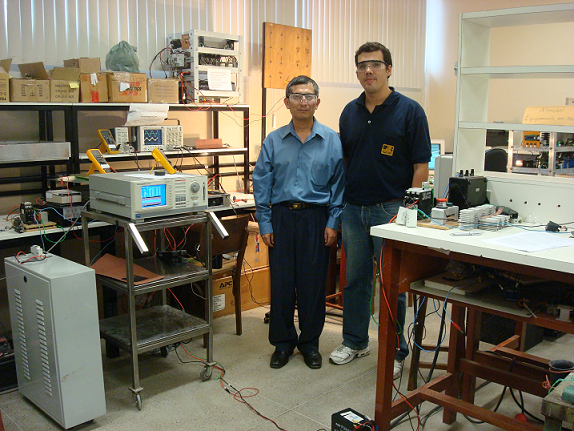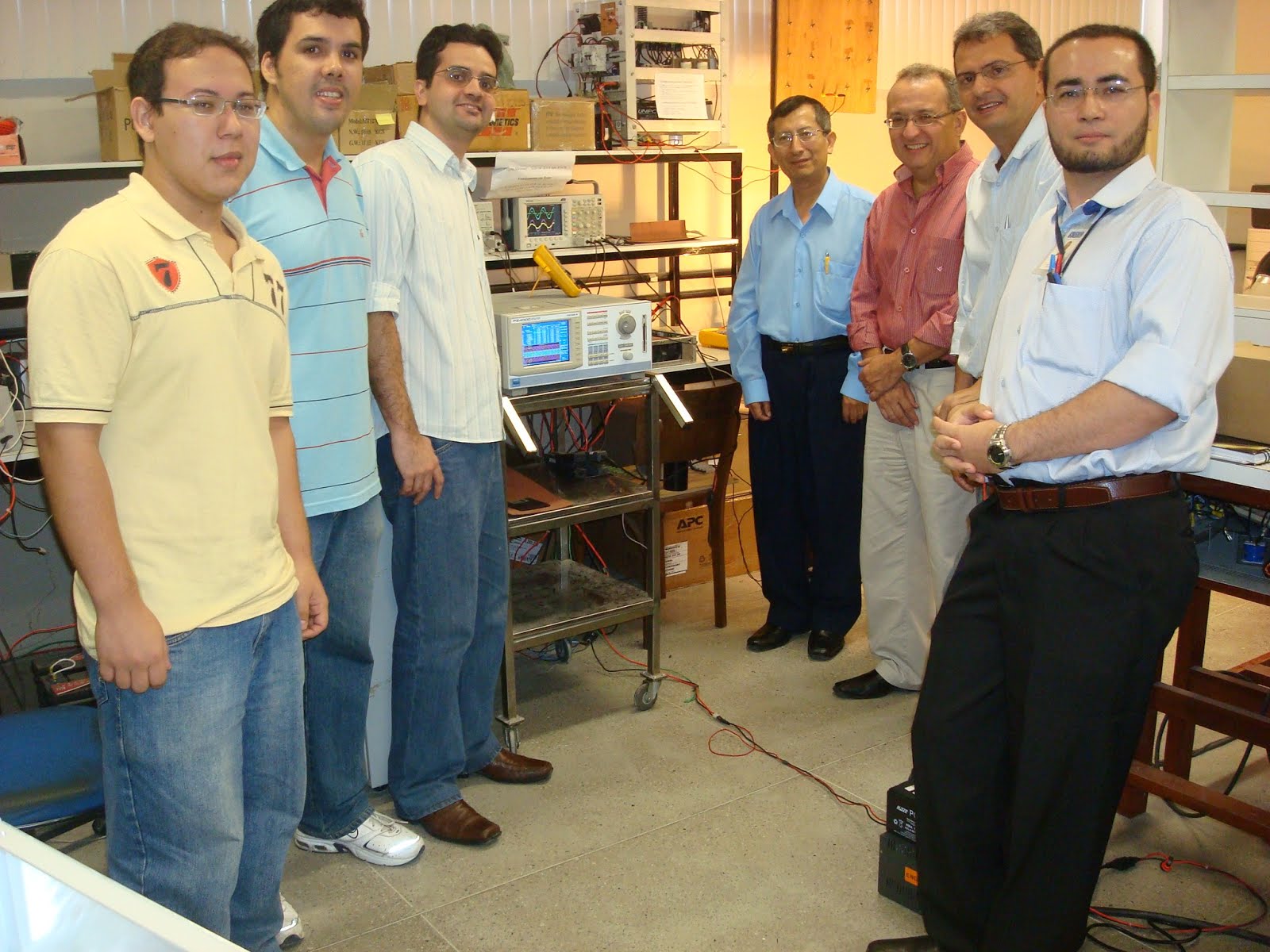domingo, 30 de julho de 2017
Measurement research on magnetic properties of electrical sheet steel under different temperature, harmonic and dc bias Dezhi Chen - Li wei Fang - Byung-il Kwon School of Electrical Engineering, Shenyang University of Technology
Measurement research on magnetic properties of electrical
sheet steel under different temperature, harmonic
and dc bias
Dezhi Chen - Li wei Fang - Byung-il Kwon
School of Electrical Engineering, Shenyang University of Technology,
Shenyang, China
I. INTRODUCTION
The phenomena such as the DC power grid, geomagnetic storms change, DC voltage of converter transformer may result in DC bias. Then the DC bias leads to the magnetic leakage flux increase in cores, metal structure losses, temperature rise, local overheating, dielectric breakdown, noise vibration, even the permanent damage to transformer.1 Meanwhile, the rise of temperature and harmonic will also affect the magnetic properties of electrical sheet steel. Manufacturers of electrical sheet steel can provide magnetic parameters, such as loss of iron core, that usually are measured at room environment temperature. The measured electromagnetic performance of transformer has a certain error compared with the actual operation temperature.2 When temperature, harmonic and DC bias change at the same time, the transformer operation condition will be more complicated. This paper is the first time to present the measurement research on the magnetic properties of oriented electrical sheet steel considering both different temperature and DC bias, and it shows the curve of magnetic properties under different temperatures (40 °C to 150 °C), frequency(50Hz to 4.5kHz) and DC bias (0A to 2.0A). It can provide a useful guidance for the design and optimization of power transformer
LINK ORIGINAL
http://aip.scitation.org/doi/pdf/10.1063/1.4979490
terça-feira, 6 de junho de 2017
Hybrid DC/DC Converter for Electric Vehicle (EV) On-Board Charger (OBC) Using Full-Bridge (FB) and Resonant Converter with Single Transformer -Department of Electrical Engineering Myongji University Seoul Korea
ABSTRACT In this document a highly efficient hybrid DC/DC converter is proposed. Its design procedure, analysis and experimental results are presented by testing of the implemented prototype and. whole document is arranged into six chapters. Electrical vehicle battery chargers background, power level, different charging methods and purpose of the document is presented in chapter 1. High power DC/DC converter topologies suggested recently, and its benefits and drawbacks are briefly discussed in chapter 2. Proposed converter diagram, operational analysis and comparison of proposed converter with other DC/DC converter topologies are presented in chapter 3. Chapter 4 is about design procedure. Based on the design procedure suggested in chapter 4, prototype design and simulation results are given in chapter 5 and experimental results are given in chapter 6. Most of the previously proposed hybrid converters have used two transformers for each converter in hybrid structure that makes the size of the converter bulky and there was also low utilization and the power distribution problem between two transformers of the hybrid converters. To solve this problem, a new high efficient hybrid DC/DC converters using single transformer, which has characteristics of Full-bridge and resonant convertor for EV OBC, is proposed in this thesis. By using single transformer the power distribution problem has been solved and transformer utilization has become high. In the proposed converter, magnetizing inductance has been used at the primary side of the transformer to obtain the soft switching such as zero voltage switching (ZVS). Leakage inductance of the transformer has been used as resonant inductor on the secondary side to avoid the use of separate inductor as resonant. The prototype of 6.6KW has been implemented to verify the feasibility of the proposed converter and maximum efficiency of 97.4 is achieved at 413 V.
This paper proposes a dc/dc converter for electric vehicle onboard chargers using a secondary resonant tank. To attain soft switching characteristics, such as zero voltage switching, magnetizing inductance has been used at the primary side of the transformer. The leakage inductance of the transformer is used as a resonant inductor on the secondary side to avoid the use of a separate inductor as resonance. The proposed converter is applicable for a wide load range. A 6.6KW prototype has been implemented for a wide range of load variations (250V, 330V, 360V, and 413V). A maximum efficiency of 97.4% is achieved at 413V.
LINK VIEW FULL TEXT
http://manuscript.jpe.or.kr/ltkPSWeb/pub/pubfpfile.aspx?ppseq=1333
LINK : http://www.mediafire.com/file/j3todp7qifgn64c/2_JPE-16-06-032.pdf
segunda-feira, 5 de junho de 2017
Digital Control of Bidirectional LLC Resonant Converters* Minjun Park Electronics Engineering, Kyungpook National University, Taegu, South Korea
Digital Control of Bidirectional LLC Resonant Converters* Minjun Park Graduate School of Electronics Engineering, Graduate School, Kyungpook National University, Taegu, South Korea (Supervised by Professor Byungcho Choi)
(Abstract)
This thesis presents the dynamic analysis and compensator design of digitally controlled bidirectional LLC resonant dc-to-dc converter. The digital control scheme employs an additional A/D feedback from the current and voltage of the resonant tank network to overcome the limitation of the existing analog control. The superiority of the digital control over the analog control is verified using an experimental 300 W bidirectional LLC resonant dc-to-dc converter. The digital compensator is designed by emulation approach using bilinear transform. Both of the controllers are verified using PSIM simulation and experimental of prototype hardware.
* A thesis submitted to the Council of the Graduate School of Kyungpook National University in partial fulfillment of the requirements for the degree of Master of Science in December 2013
SEMIKRON Innovation Award and SEMIKRON Young Engineer Award 2017
(from left to right) Prof. Leo Lorenz (ECPE), Johannes Kolb (Karlsruhe Institute of Technology), Mario Gommeringer (Karlsruhe Institute of Technology), Alexander Schmitt (Karlsruhe Institute of Technology), Pierrick Ausseresse (Infineon Technologies), Marco Schilling (Ilmenau Technical University), Bettina Martin (SEMIKRON-Stiftung) Quelle: TILMAN WEISHART PHOTOGRAPHY
Winner of the Semikron Innovation Award 2017
This year’s SEMIKRON Innovation Award went to a team of three engineers: Mario Gommeringer, Johannes Kolb and Alexander Schmitt from KIT Karlsruhe. The award-winning team has developed a new innovative power electronic circuit at the Institute of Electrical Engineering (ETI) of KIT Karlsruhe that will help maximize power output in solar power generators. The new circuit known as the HILEM circuit or “High Efficiency Low Effort MPP Tracking Circuit” can be connected between any number of photovoltaic strings and a common inverter.
Winner of the Semikron Young Engineer Award 2017
This year’s SEMIKRON Young Engineer Award has gone to two young researchers. The first award winner Pierrick Ausseresse from Infineon Technologies was selected for his work on the development of a new digital IC for use in PC power supplies. The other joint winner of the Young Engineer Award is Marco Schilling from Ilmenau Technical University. Mr Schilling’s award-winning development Opti-PAC is a new, versatile tool for optimum active and passive component selection in automotive power systems such as electric drivetrains or DC/DC converters.
LINK ORIGINAL:http://www.ecpe.org/awards/semikron-innovation-awardsemikron-young-engineer-award/
Assinar:
Postagens (Atom)













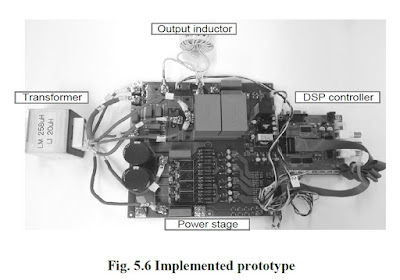














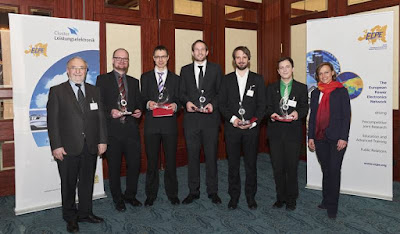

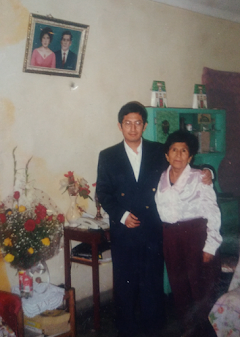














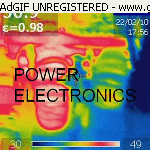




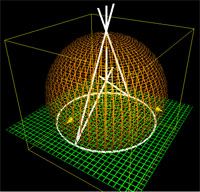


 JOSIL ARTISTA PLASTICO FORTALEZA CEARA BRASIL AV.HERACLITO GRAÇA 41 TEL(85)32542378
JOSIL ARTISTA PLASTICO FORTALEZA CEARA BRASIL AV.HERACLITO GRAÇA 41 TEL(85)32542378